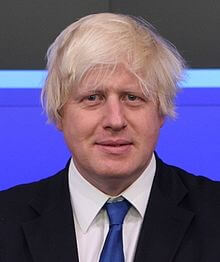By Llewellyn King
Long before our election in November, a much greater upheaval may hit Britain. Probably in late June, the country will vote on whether to stay in the European Union. Leaving is called “Brexit” in the British press.
While polls have consistently shown that voters favor Britain remaining a member of the 28-nation bloc, there are signs that things are changing. British business, which has until now seen its future as being in the EU, is beginning to rethink its support for British membership. A recent poll shows industry believing it could prosper out of the EU.
This is a big problem for British Prime Minister David Cameron. He has promised dramatic changes in Britain’s membership, which will be announced at the European summit next month.
Britain wants less-oppressive regulations and a change in immigration policy. It wants an end to what has been a fundamental part of the European structure: the freedom of movement between countries. In short: no more immigration to Britain from Europe.
It is a complex negotiation which Cameron believes he can win; particularly when Europe is in shaky shape after the economic crisis in Greece and from the surge of migrants from the Middle East and North Africa.
Although Europe’s political elites may have to hold their refined noses, the chances are better today than ever that they would rather their unruly island neighbors stay in than further damage the European project by withdrawing.
Predictably some economists say that Britain will do just fine without Europe, while others see dire economic consequences.
When the referendum comes, it will be a free vote with about half of Cameron’s Conservative Party voting to withdraw. These are the rambunctious “Euroskeptics” that have bedeviled British elections for generations and have made the role of Conservative prime ministers particularly trying.
The opposition Labor Party is divided on a Brexit. But Labor has so imploded under the extreme leftist Jeremy Corbyn that it is likely to go along and lend its support — feeble though it is — to the forces wishing to stay in the EU.
The Scottish Nationalists will also support continued membership. They hope that if they break away from the United Kingdom, they will get succor from the EU.
But the forces for exiting the EU are powerful and articulate. They are emboldened by Europe’s problems and the fact that they will no longer be bound by the dictates of, as they say, “faceless bureaucrats in Brussels.”
The wild card in the referendum may be England’s wild man: Alexander Boris de Pfeffel Johnson.
Now finishing his term as mayor of London, Boris Johnson is a lovable version of Donald Trump. He has gone from scrape to scrape and has come out ahead of the game. For instance, three years after having won a seat in Parliament in 2001, Johnson was sacked by the Tory leader at the time, Michael Howard, for allegedly lying over an affair with journalist Petronella Wyatt. Johnson called newspaper stories about the affair “an inverted pyramid of piffle.” He was also sacked from his editorship of The Spectator, where the piffle took place.
But being elected to higher office is such a compensation, so Johnson, a bicycle-riding, tradition-loving maverick got himself elected mayor of London. In this office he saved the iconic double-decker buses, presided over the 2012 Summer Olympics, and endeared himself to an even wider audience.
The British revere Johnson’s eccentricity and voted him back into Parliament in the last election. Now people talk openly of him being Cameron’s successor after the referendum.
Johnson has hedged his bets on British membership in the EU. Just this week he declared that he will not lead the “Out” forces, but he does not totally endorse the “In” forces.
Here is the possible scenario: Cameron has to produce a deal that satisfies some of the Euroskeptics and set a date for referendum. Then the vote. Then the hangover, one way or another. Then Johnson makes his move – unless some schemer, like the current Chancellor of the Exchequer George Osborne, has not outmaneuvered the charming and brilliant Boris.
Cleverly Johnson has written a long political treatise comparing London to Athens, and leaving room for people to believe he has the qualities of Pericles, without actually claiming the great Greek’s mantle. Then, just to be safe, he has knocked off a highly laudatory biography of Churchill, which invites the idea that Johnson shares some of his hero’s traits.
This kind of effrontery makes British politics a perpetual night in the pub. Cheers! — For Inside Sources






